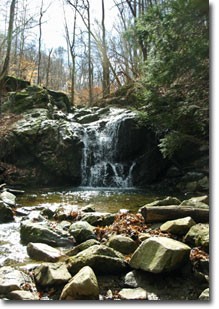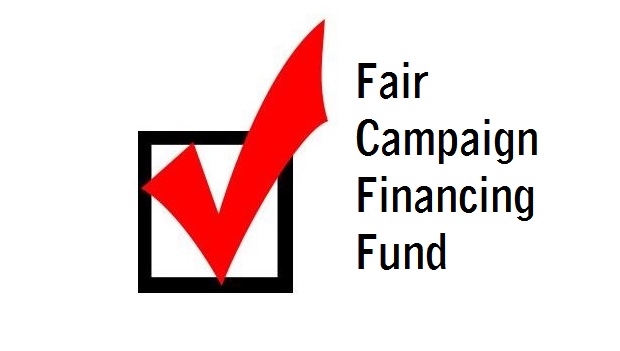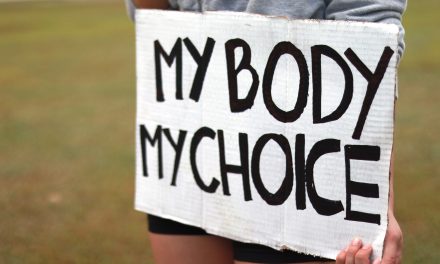By Bryan Renbaum
For MarylandReporter.com

Waterfall in Patapsco Valley State Park
The House of Delegates is moving forward on a proposal by Gov. Larry Hogan to keep transfer tax funds collected during real estate transactions for their intended purpose — preserving open space, agricultural land and operating parks and state forests.
The bill, HB462, which enjoys overwhelming Republican support, as well as several other Democratic co-sponsors, was amended and approved for a final House vote on Tuesday. UPDATED 3/16 The bill passed the House unanimously on Wednesday.
It is designed to prevent these funds from being raided to balance the budget and instead keeps them in the Project Open Space fund, which is distributed in a specific formula to different types of open space initiatives.
If passed, general fund revenues would decrease $20 million in FY 2017 and by $40 million in FY 2018. But spending for open space would increase as those funds stay available, instead of going to the general fund.
The bill was amended in the House Appropriations Committee to aid a number of park projects in Baltimore.
More funds to Program Open Space
During the February hearing, Secretary of Natural Resources Mark Belton told the Appropriations Committee that the bill would increase revenues for conservation programs and gave specific examples of how those programs like local Program Open Space grants, the Maryland Rural Legacy Program and the Maryland Agricultural Land Preservation Foundation, would benefit.
“For the Rural Legacy Program, this bill would allow $4.8 million more dollars 2017 and $9 million more dollars in 2018, preserving approximately 1,300 and 2,500 additional acres in those years respectively. And similar increases would impact those programs in similar ways,” Belton said.
Mathew Palmer, who is the Hogan administration’s Deputy Legislative Officer, spoke briefly, but also stressed increased conservation revenues.
“The bill sets out that we give back $20 million to Program Open Space in the coming fiscal year and $40 million in the next fiscal year,” Palmer told the committee.
Committee chair skeptical
Del. Maggie McIntosh, D-Baltimore City, the committee chair, questioned the accuracy of Palmer’s estimates and suggested funds might still be diverted from Program Open Space.
“You’re saying that this bill basically says that you’re putting back $20 million into Program Open Space to be distributed by formula and that $40 million will be distributed by formula,” McIntosh asked.
Palmer denied that was the case and said the bill only deals with repayment and that funds would not be put back in the formula. The bill identifies specific funding amounts for each program within Program Open Space for the $20 million and $40 million. For instance, in fiscal 2017 it would give $4 million to Program Open Space state, which the budget bill said would go toward a grant for Eager Park in Baltimore City. It calls for $5 million for local open space projects and $4.9 million for Rural Legacy, among other planned allocations.
But McIntosh was still skeptical.
“I just want to make it very clear that the comprehensive bill repays Program Open Space and it goes through the formula, am I correct? This is something different, in fact I could almost look at it as if they’re taking money out of the formula, $20 million and 40 million, so just know that this is gonna be the discussion we have when we work together on this, ok?”






Useful article , Incidentally if people are wanting a a form , my boss edited a sample document here
http://goo.gl/NXIpivWhat fools these liberals are who continue to support “open space” purchases. That would include, of course, both the progressive legislatures who vote and push this program, as well as the citizens who continue to re-elect these foolish these legislators.
The purchase of so-called “open space” land is praised and lauded as being great for the community by “preserving” land that might otherwise be developed. There are a host of these programs designed to create parks and recreation areas, or to preserve farmlands and historic properties––all of which give the mindless that warm and fuzzy feeling that they’re doing something “just wonderful”
But it is more than simply requiring citizens to pay additional taxes when they buy and sell properties; that is the smallest part of the problem. The most venal part of the program is that it takes those properties off the tax rolls, generally forever. The result, of course, is that the collective tax burden of the rest of Maryland citizens goes up in order to compensate for those losses. And, because it is incremental, the tax payers generally don’t notice the increase.
The federal government operates a similar program, but they don’t call it “open space”; they simply call it what it is––government confection of lands. Like the State of Maryland’s “open space” program, they do it for the same nobel purposes. But the end result with the federal government is that they now own almost 50% of every square foot of land in the western part of the United States. They actually own over 80% of the State of Utah. And, not only have these lands been removed from the tax rolls, Americans are restricted in their use of the lands, and they must pay for the government up keeping them for the use of absolutely nobody.
The State of Maryland is not at that point yet, but as the Open Space programs continue through the years, eventually they’ll reach similar levels. What ever happened to that old saying: government of the people, by the people and for the people?
There is a downside to the Open Space Funds. While the intention is noble, the loss of tax revenue for land purchased with the funds isn’t. There is a loss of tax income to the counties when this occurs. The money is used to fund county government missions such as schools, local roads, police and other services. In Caroline County, the loss of revenue means the county must increase the tax rate on homes and businesses. In Caroline County, the loss of revenue requires raising the tax rate to compensate. The homes and businesses are now taxed to a breaking point. No one will purchase a home or commercial property and the value goes down. Assessors are pressured to increase assessments, but the values are falling thereby putting more pressure on the county to increase tax rates. The state is granting tax relief using the taxes that should fund schools and county services. Want to know why residents and businesses are fleeing the state – apply this formula and it’s a no brainer!
The bill should become law although it will provide a fraction of the reform needed for Trust Fund integrity. What about the Transportation Trust Fund or the Local Income Tax Reserve Fund, or the nine others the state raids with impunity? How about the new Health Benefit Exchange Fund, which collects insurance taxes that get transferred automatically to the general fund where much of the money is spent on state operations rather than the health exchange, without recourse?
It is vital that the state can borrow money from these funds. But the money needs to be repaid with interest. The current practice is like the mafia, confiscate the money and never repay it and when it is paid, no interest is due. True reform would fix the current abuse of the state’s taxing authority, where taxes are collected for specific purposes and spent on anything but those purposes.